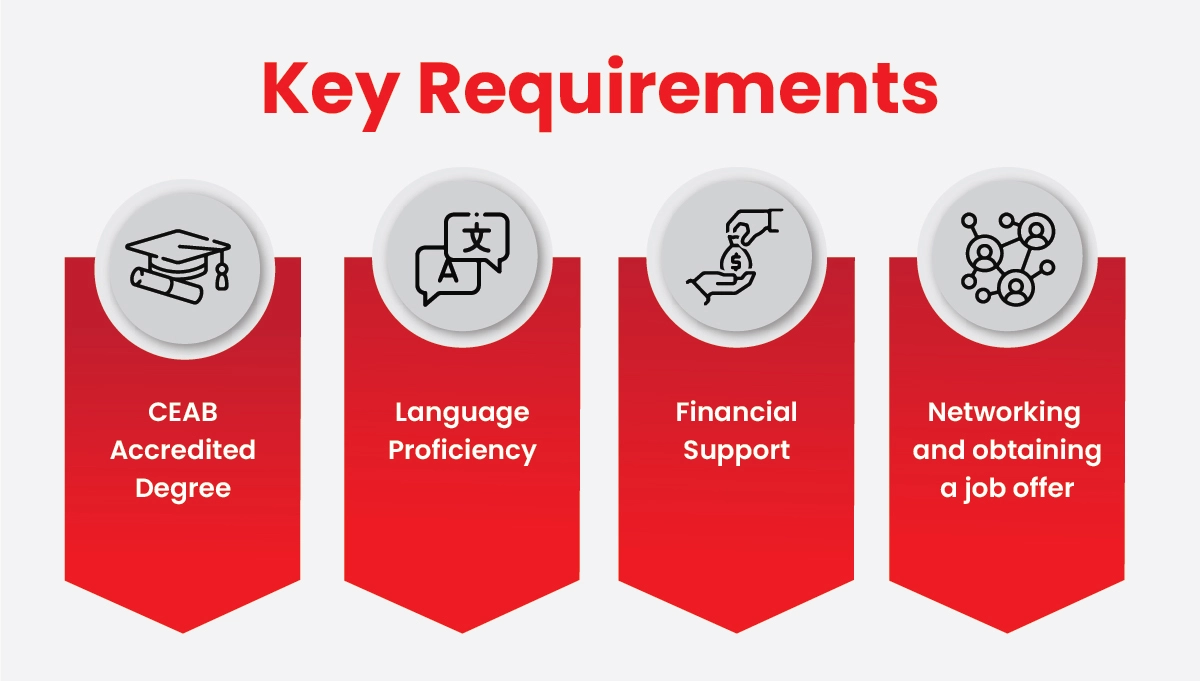In the case of civil engineering, Canada’s voices are clear and loud: You are needed here!!
More and more ever-growing Canadian cities and a lot of regions are being improved constantly. Canada and with it the demand for Civil Engineers is rising on the pace with the underlying economy.
Currently, Canada is the second largest country in the world, and for this reason, there is a high demand for civil engineers in the country. To the skilled foreign nationals, it affords some of the world’s best paid employment opportunities.
This blog specially devotes itself to focus on the demand of Civil Engineers in Canada. Read on.
Table of Content
1Overview of Civil Engineering in Canada2Demand for Civil Engineers in Canada from India3Opportunities for Indian Civil Engineers in Canada4How to Become a Civil Engineer in Canada5Understanding Canada’s PR Requirements for Civil Engineers6Civil Engineering Jobs in Canada7Types of Civil Engineering Jobs8Civil Engineer Salary in Canada9How to Immigrate to Canada as a Civil Engineer10Wrap up11Frequently Asked Questions ( FAQ )
Overview of Civil Engineering in Canada
Lately, Canada’s infrastructure growth has been on the rise and therefore employment opportunities for engineers in different fields are rapidly increasing. Therefore, Civil Engineering jobs in Canada are in high demand. Since the country has large expansion projects in urban structure, transport means and the environment. As Canada’s infrastructure develops with such challenges as climate alterations and quest for sustainability as well as continuing urbanization, more people will be required to provide civil engineering solutions.
Demand for Civil Engineers in Canada from India
India has a large number of engineering students passing out every year and many are interested in going abroad. Canadian civil engineering jobs are highly preferred by the Indian professionals given the fact that the jobs pay well besides providing a decent quality life and the chance to work on prospecting projects. Canada employers appreciate the technical skills and experience of the Indian engineers and thus employers provide the Indian engineers with jobs that would get them a visa to work in Canada. Therefore, it will be right to conclude that, yes, this is really an easy way to Canada immigration. And getting a Canada PR.
Opportunities for Indian Civil Engineers in Canada
There are many opportunities for Indian civil engineers in Canada especially in big cities of Toronto, Vancouver and Calgary. There is always work to do in civil engineering since the Canadian government has committed resources to renewing and expanding its infrastructure draw in areas including construction, transport, and the environment. In the last part, it is similarly important to point out that the Canadian job market is competitive, but fair, so engineers stand a good shot at improving their ranks.
How to Become a Civil Engineer in Canada
To work as a civil engineer in Canada, Indian professionals must first understand the accreditation and licensing requirements. Generally, you will need a degree in civil engineering from a recognized institution and must become licensed by a provincial or territorial engineering regulatory body. This process may involve passing exams, gaining work experience under a licensed engineer, and proving your proficiency in English or French.

Understanding Canada’s PR Requirements for Civil Engineers :
CEAB-Accredited Degree: A bachelor’s degree in civil engineering or a related field is essential. Advanced degrees, such as a master’s or doctorate, can enhance your qualifications.
Language Proficiency: Demonstrating proficiency in either English or French is a fundamental requirement for Canadian immigration. You’ll need to pass a language test like IELTS, CELPIP (for English), or TEF (for French) to prove your language skills.
Financial Support: To successfully immigrate to Canada, you must demonstrate that you have sufficient funds to support yourself and your family during the initial settlement period. Provide evidence of your financial resources, such as bank statements or investment documents.
Networking and obtaining a job offer: Build strong connections with professionals in the Canadian civil engineering industry through conferences, online forums, and industry associations. These relationships can open doors to job offers and valuable insights into the Canadian job market.
Civil Engineering Jobs in Canada
Civil engineering jobs in Canada span a wide range of specializations. Engineers can find roles in sectors such as structural engineering, environmental engineering, transportation engineering, and geotechnical engineering. The demand is particularly high for engineers with experience in sustainable and green building practices, as Canada is increasingly focusing on environmentally friendly development. These roles typically fall under NOC 21300, which covers various civil engineering positions across the country.
Types of Civil Engineering Jobs
Civil engineers in Canada can explore various job roles, including:
- Bridge engineer
- Civil engineer
- Construction engineer
- Environmental engineer
- Geodetic engineer
- Geomatics engineer
- Highway engineer
- Hydraulics engineer
- Municipal engineer
- Project engineer, construction
- Public works engineer
- Sanitation engineer
- Structural engineer
- Surveying engineer
- Traffic engineer
- Transportation engineer
- Water management engineer
Civil Engineer Salary in Canada
The salary for civil engineers in Canada is competitive and varies depending on the province, level of experience, and specific job role. On average, civil engineers in Canada earn between CAD 60,000 to CAD 100,000 per year. When converted to Indian Rupees, this translates to approximately ₹36,00,000 to ₹61,00,000 per year, making it an attractive proposition for Indian engineers looking to work abroad. Notably, civil engineering salaries are significantly above the Canada minimum wage, reflecting the high demand and specialized skills required in this profession.
The average salary of civil engineers in different provinces is given :
| Provinces | Average salary per hour (CAD) |
| British Columbia | 52.85 |
| Alberta | 50.48 |
| Saskatchewan | 43.75 |
| Manitoba | 41.35 |
| Ontario | 43.96 |
| Quebec | 43.13 |
| New Brunswick | 43.94 |
| Nova Scotia | 39.00 |
| Prince Edward Island | 37.50 |
| Newfoundland and Labrador | 35.00 |
How to Immigrate to Canada as a Civil Engineer
With Canada’s immigration system becoming more selective based on the nation’s economic needs, targeted professions have emerged as a key factor for those granted permanent residency through Express Entry and Provincial Nominee Programs.
Engineering personnel are frequent amongst the most demanded experts in Canada’s labor market. The federal and provincial immigration ministries have recently stated their requirement of different types of engineers in Canada. As such, civil engineers are surrounded by numerous opportunities to immigrate to the country. There are several immigration pathways for civil engineers looking to move to Canada.
The main important pathways are:
Express Entry:
This is a points-based system that evaluates candidates based on factors like age, education, work experience, and language proficiency. Civil engineers often score well on the Comprehensive Ranking System (CRS) due to their qualifications and work experience.
Provincial Nominee Programs (PNPs):
Some of the provinces in Canada have designated certain streams for skilled workers for instance engineers. Therefore, if your profile has been nominated by a particular province, then it boost your chances of being invited to apply for permanent residence.
Atlantic Immigration Program (AIP):
For those considering moving to one of the Atlantic provinces (Newfoundland and Labrador, Prince Edward Island, Nova Scotia, or New Brunswick), this program is designed for skilled workers, including civil engineers.
Quebec Skilled Worker Program (QSWP):
If you plan to settle in Quebec, the QSWP is an option. Civil engineers can apply if they meet Quebec’s specific criteria, which include a points-based selection system.
Each of these pathways has specific requirements and processes, so it’s essential to determine which one best suits your qualifications and career goals.
Wrap up
For civil engineers, opportunities exist in Canada where not only are they well paid but they also have a rare chance to participate in key infrastructure development. The entire Procedure of immigration can be less complicated if civil engineers from India have the right qualifications and be clear about the immigration procedures in Canada and follow the immigration procedures that are needed for their employment in the country. If you have any Canada immigration concerns, you can surely trust CanApprove… Consult Now!



2 thoughts on “Demand for Civil Engineers in Canada”